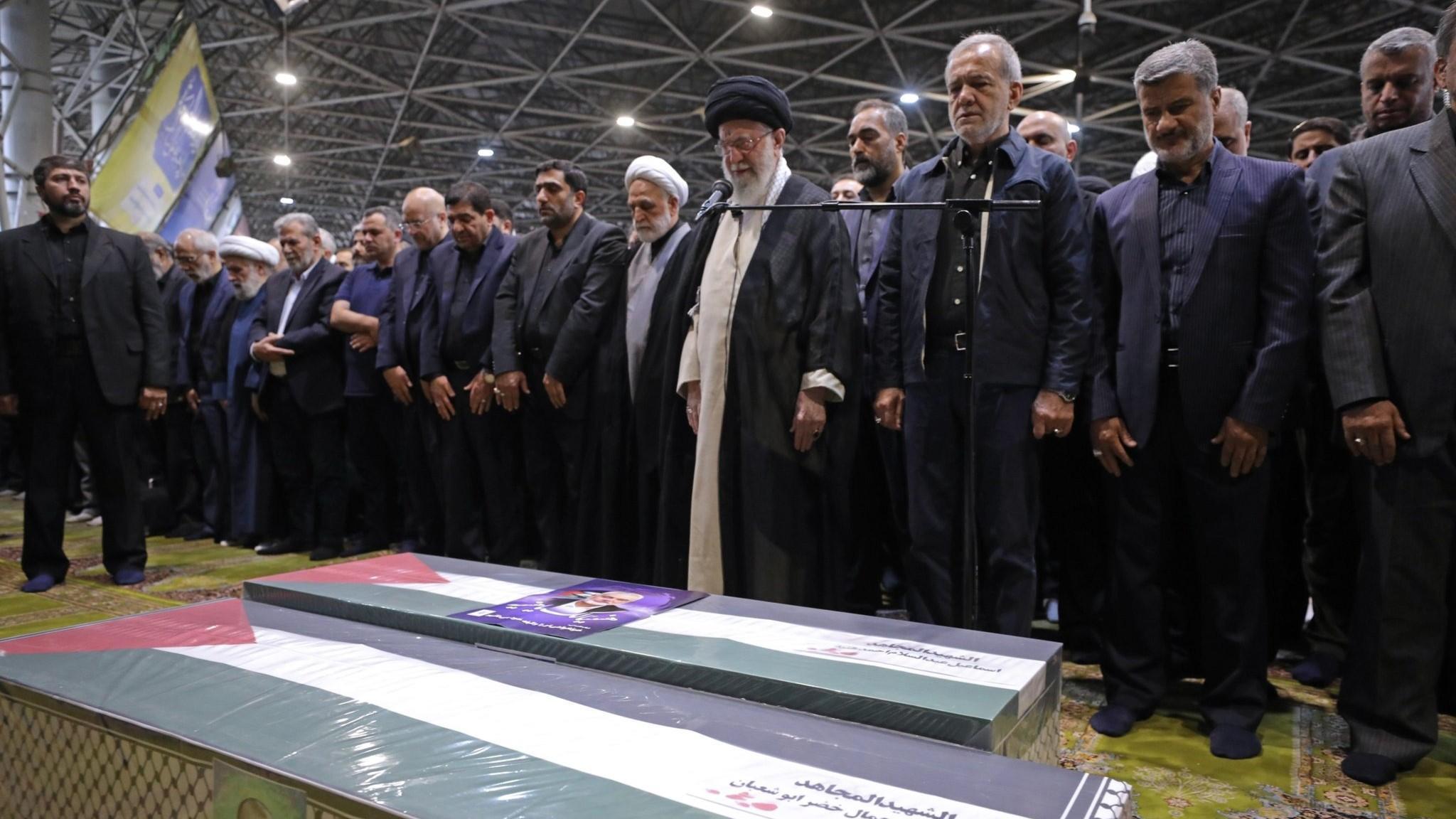
Iran held a funeral ceremony on Thursday with calls for revenge after the killing in Tehran of Hamas political chief Ismail Haniyeh in a strike blamed on Israel.
The Islamic Republic's supreme leader Ayatollah Ali Khamenei led prayers for Haniyeh ahead of his burial in Qatar, having earlier threatened a "harsh punishment" for his killing.
In Tehran's city center, thousands of mourning crowds carrying posters of Haniyeh and Palestinian flags gathered for the ceremony at Tehran University before a procession.
Iran's Revolutionary Guards announced Haniyeh's death the day before. They said he and a bodyguard were killed in a strike on their accommodation in the Iranian capital.
It came just hours after Israel targeted and killed top Hezbollah commander Fuad Shukr in a retaliatory strike on the Lebanese capital Beirut.
Iran's state TV showed the coffins of Haniyeh and his bodyguard covered in Palestinian flags during the ceremony attended by senior Iranian officials including President Masoud Pezeshkian and Islamic Revolutionary Guard Corps chief, General Hossein Salami.
Haniyeh had been visiting Tehran for Pezeshkian's inauguration ceremony on July 30.
Khalil al-Hayya, Hamas's foreign relations chief, vowed during the funeral ceremony that Haniyeh's message will live on and "we will pursue Israel until it is uprooted from the land of Palestine.”
The caskets, with a black-and-white pattern resembling a Palestinian keffiyeh scarf, were borne on a flower-decorated truck through city streets jammed with mourners cooled by water spray on a hot day.
Iran's conservative parliamentary speaker Mohammad Bagher Ghalibaf said Iran "will certainly carry out the supreme leader's order [to avenge Haniyeh].”
"It is our duty to respond at the right time and in the right place," he said, as crowds chanted "Death to Israel, Death to America!"
Khamenei said after Haniyeh's death that it was "our duty to seek revenge for his blood as he was martyred in the territory of the Islamic Republic of Iran.”
The New York Times, citing Iranian officials, reported that Khamenei has ordered that Iran strike Israel directly.
The international community, however, called for calm and a focus on securing a ceasefire in Gaza, which Haniyeh had accused Israel of obstructing.
U.N. Secretary-General Antonio Guterres said the strikes in Tehran and Beirut represented a "dangerous escalation.”
The United Nations Security Council convened an emergency meeting on July 31 at Iran's request to discuss the incident.
U.S. Secretary of State Antony Blinken yesterday reiterated appeals for an end to fighting. He said achieving peace "starts with a ceasefire" and called on "all parties" to "stop escalatory actions.”
In a televised address late on July 31, Israeli Prime Ministry Benjamin Netanyahu said, Israel "delivered crushing blows to all our enemies,” explicitly mentioning the killing of Hezbollah leader Fuad Shukr in south Beirut.
Netanyahu did not make any reference to the killing of Hamas chief Ismail Haniyeh in Tehran.
But he said that had Israel succumbed to pressure for ending the war in Gaza it "would not have eliminated Hamas leaders and thousands of terrorists.”
"We have settled our scores with Mohsen and we will settle our scores with anyone who harms us," he said using Shukr's nom de guerre.